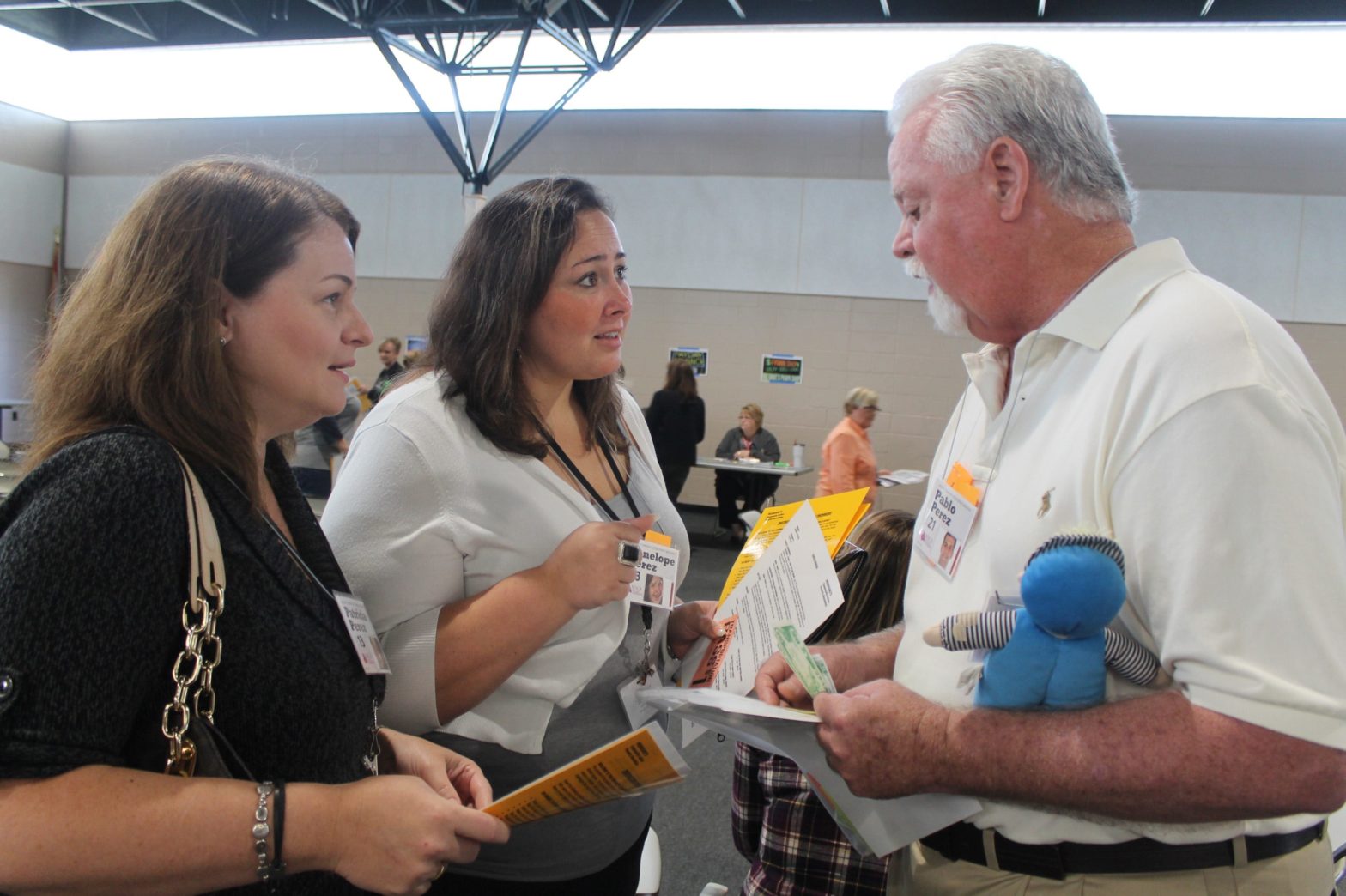![From left are Michelle Owen, Heather Bryson and Bruce Smith. They played a family of four, including a baby. Owen and Bryson played 13-year-old girls, sisters of Smith. He played a 21-year-old fulltime college student during the poverty simulation. [AARON LITTLE | Press Gazette]](http://127.0.0.1/wordpress/wp-content/uploads/2022/01/ghows-DA-5f9988b5-c1f3-07d2-e053-0100007f4c97-884478b2-scaled.jpeg)
MILTON — The Health Department of Santa Rosa recently conducted a poverty simulation at the Santa Rosa County auditorium with nonprofit Santa Rosa County Bridges Out of Poverty.
During the simulation, participants played people in real situations trying to support their families.
The simulation used fake money, transportation vouchers and cards that change the participants’ scenario such as losing a job or being robbed. The goal is to use various social services to maintain employment, housing and food supply for the family.
Bruce Smith played 21-year-old Pablo Perez living with his two 13-year-old sisters, Patricia and Penelope. They were played by Michelle Owen and Heather Bryson, respectively. The three had no parents to help and a baby to care for.
In the simulation, Owen and Bryson tried to contribute to the family while attending school; Smith attended college fulltime while selling blood to buy things the family needed.
Smith, who taught English, speech and debate for 30 years, said he knows what it’s like to grow up poor as one of 12 children in his Atlanta family.
His parents were too proud, Smith said, to accept help from the government, but would accept food from neighbors.
"I know powdered milk and government cheese," he said.
Bridges President Karen Barber raised her two children, she said, as a single mother who watched her complete her master’s degree.
"They hear from me all the time ask ‘What is your integrity worth?’" Barber said. However, Barber learned the term "situational ethics" following her first poverty simulation playing a teen father.
"I was 17 years old and had a girlfriend and a baby," she said. During the simulation she was overpaid.
"I kept it because I had a girlfriend and a baby and needed food," she said. "The high road is a luxury."
Participants also played roles such as the service providers, utility departments and teachers.
The participant playing the power utility company said he had to issue three notices of shutting off power.
Ashlee Turner, a health educator with the Florida Department of Health Santa Rosa, played a teacher. During the simulation, she had to ask students for money to pay for field trips and Valentine’s Day events but often students could not afford them.
"It’s hard to focus with crisis after crisis," she said. "It was eye-opening and heart breaking because you want to help."






This article originally appeared on Santa Rosa Press Gazette: 'It was eye-opening and heart breaking'
